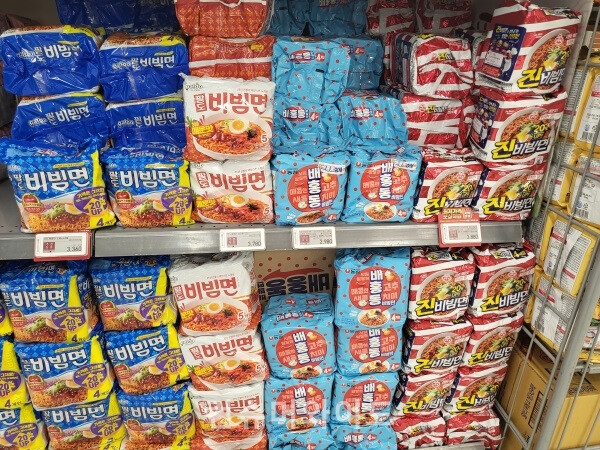
Seoul, South Korea – South Korea's food industry has reported mixed results for the third quarter of this year. While companies with strong export businesses have benefited from robust overseas demand, domestic-focused businesses have struggled amid a severe domestic slump and rising costs.
According to a comprehensive analysis of the food industry's third-quarter earnings, Samyang Foods emerged as the top performer. Driven by the popularity of its "Bulgogi Bokkeum Myeon" (spicy chicken noodle soup), Samyang Foods reported an 101% increase in operating profit to 87.3 billion won compared to the same period last year. Overseas sales accounted for 78% of total revenue, reaching 342.8 billion won, a 43% year-on-year increase.
Pulmuone also announced record-breaking third-quarter earnings, with operating profit surging 52% to 33.3 billion won. The company attributed its strong performance to increased sales of tofu and Asian food in the global market, particularly in the United States.
While many companies experienced domestic challenges, several managed to offset these losses through overseas growth or diversification. CJ Cheiljedang, the industry leader, saw a 6% decline in domestic food sales but managed to limit the overall decline in its food business to 1.1% thanks to a 5% increase in overseas sales. The company's bio business also contributed to the overall growth.
Nongshim, on the other hand, saw a 33.5% increase in exports but experienced a decline in domestic sales, resulting in a 0.6% decrease in overall revenue and a 32.5% drop in operating profit. Lotte Chilsung Beverage reported a 28.3% increase in revenue to 1.065 trillion won, driven by a 359.5% surge in global sales. However, domestic sales were impacted by weak consumer spending and prolonged rainy weather.
Dae Sang saw a 30.3% increase in overall operating profit due to improved profitability in its materials business, despite a decline in food business operating profit. Orion's third-quarter operating profit decreased by 2.6% to 137.1 billion won, while revenue grew by a modest 1.1% to 774.9 billion won.
With high inflation and economic recession expected to continue, the ability of food companies to expand overseas and diversify their businesses will be crucial to future performance.
[Copyright (c) Global Economic Times. All Rights Reserved.]






























